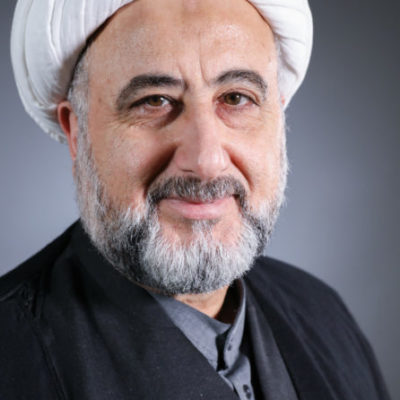About Shaykh Mohammad al-Ali al-Halabi

Shaykh Mohammad al-Ali al-Halabi
His Eminence Shaykh Mohammad al-Ali al-Halabi joined the Islamic seminary in the city of Qom, Iran, in 1987 and continued studying until 1999. He completed the introductory (muqaddimat), intermediate (sutuh), and advanced (kharij) classes under prominent scholars such as Ayatullah Shaykh Hassan al-Jawahiri, Ayatullah Shaykh Hadi al-Radhi, and Ayatullah Sayyid Hussain al-Shahroodi and he finalized his studies in jurisprudence (kharij al-fiqh) under Ayatullah Mirza Jawad al-Tabrizi and Ayatullah Shaykh Fadhil al-Lankarani, and his theological and philosophical studies under Sayyid al-Haydari.
He taught different levels of seminary classes in al-Hujjatiah school, Majma al-Talabah al-Bahraniyyin, and Muntada Jabal Amil in the City of Qom, Iran. He continues to teach both traditional and academic seminary courses in the United States in several centers and institutions In addition, he taught Arabic to non-native speakers at Northern Virginia Community College (NOVA) and The Middle East Institute in Washington, D.C., in 2003–2004.
He published many articles and research papers about religious, cultural, and intellectual affairs. He has written four manuscripts: two jurisprudential ones (When Sujud al-sahu Becomes Necessary, and The Transactions of a Child), one historical one (Aways al-Qarny, the Best of Followers), and one book of poetry. The historical content of Aways al-Qarny appeared in Science of Hadith magazine in Iran, and his articles and poems appeared in various magazines and websites.
Shaykh al-Halabi has been preaching for over three decades, and he is active in dialogue, literary, and intellectual forums.
He currently contributes to I.M.A.M. as an imam, scholar, teacher, lecturer, and the Administrator of the Religious Affairs Office in Dearborn, Michigan.
